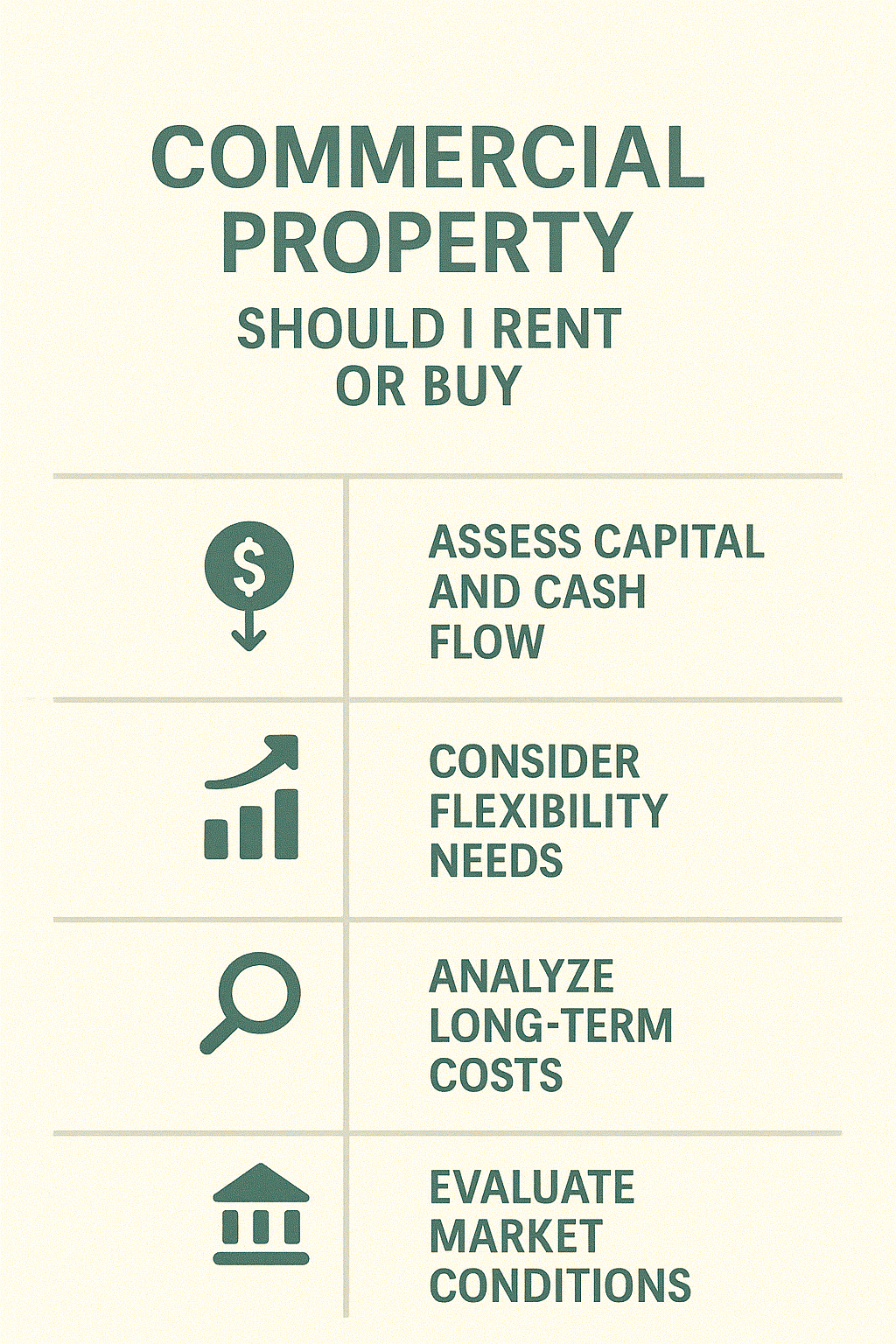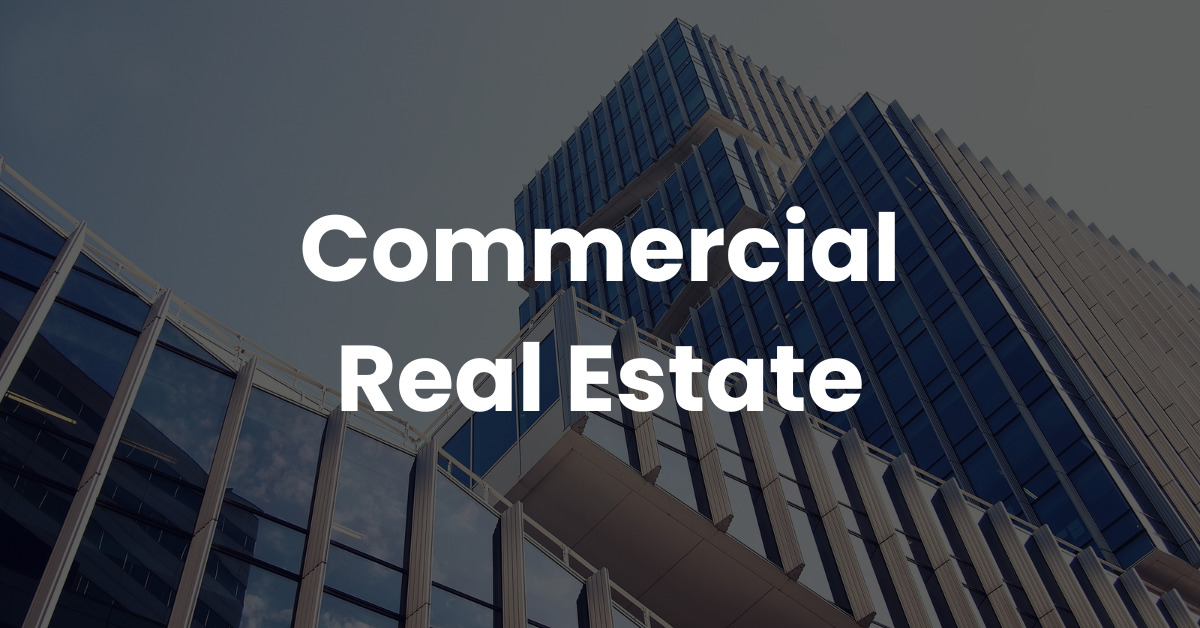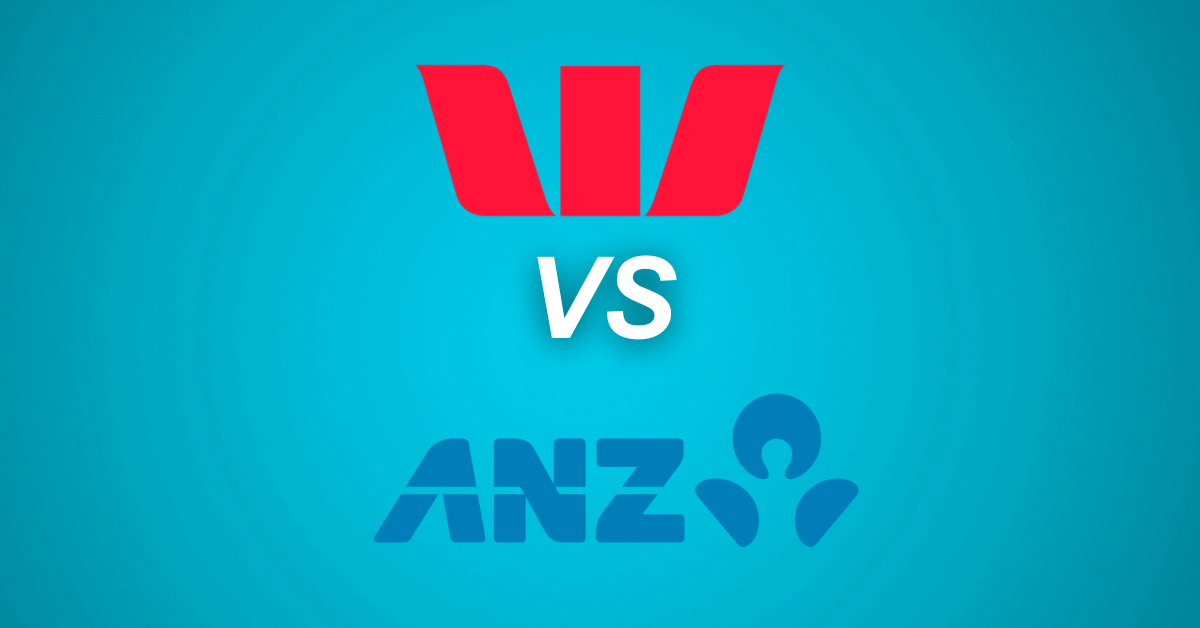One of the most important decisions a business owner may face is whether to rent or buy commercial property, and under which entity structure it should be owned. This decision impacts your cash flow, tax position, operational flexibility, and long-term growth strategy.
Below, we explore both options and outline the key considerations you should evaluate before moving.
Renting vs. Buying: Key Business Considerations
Financial Commitments
Renting:
Renting commercial space typically requires less capital upfront. You’ll usually need to pay a security deposit and perhaps a few months’ rent in advance. This frees up capital for other business priorities like staffing, marketing, or inventory.
Buying:
Buying requires a significant initial outlay, including a deposit (often 10–30%), stamp duty, legal fees, and ongoing mortgage repayments. However, ownership can lead to long-term financial benefits, including equity buildup and potential capital gains.
Key Takeaway: Renting is better for businesses that want to preserve capital; buying may benefit those looking for long-term stability and investment.
Flexibility vs. Control
Renting:
Leasing a property allows your business to upgrade, relocate, or downsize as needs change. Lease terms are typically fixed, but options to renew or break the lease may be negotiated.
Buying:
Ownership offers complete control over the property, including the ability to modify the premises to suit your operations. However, selling or moving can be more complex and time-consuming.
Key Takeaway: Renting suits fast-growing or transitional businesses; buying suits businesses seeking permanence and control.
Tax Implications
Renting:
Rental payments are fully deductible as business operating expenses, reducing taxable income.
Buying:
Ownership brings tax advantages such as:
-
Depreciation of the building
-
Interest deductions on the mortgage
-
Potential capital gains on eventual sale (with tax implications)
Key Takeaway: Both renting and buying offer tax advantages—speak to a tax professional to evaluate what works best in your situation.
Maintenance Responsibilities
Renting:
In most leases, the landlord is responsible for major maintenance and repairs. This means fewer unexpected costs and less responsibility for upkeep.
Buying:
As the property owner, all maintenance, repairs, insurance, and property management responsibilities fall on you. These costs can fluctuate and must be budgeted for.
Key Takeaway: Renting reduces maintenance obligations, while buying increases them but grants full autonomy.
Market Conditions and Timing
Before buying or signing a lease, evaluate the commercial property market:
-
Are property values trending up or down?
-
Are interest rates favorable for borrowing?
-
Is rental demand high or low in your desired area?
A favorable buying market might justify a purchase, while uncertainty may call for a short- to medium-term lease instead.
Key Takeaway: Timing and market conditions can significantly affect the value and risk of your decision.
Choosing the Right Ownership Structure
Once you decide to buy, selecting the appropriate entity to hold the property is critical. The structure you choose affects your liability, taxes, and ownership flexibility.
Sole Proprietorship
-
Pros: Simple and inexpensive to set up; complete control over decisions.
-
Cons: The owner is personally liable for all debts and obligations, including those related to the property.
Best For: Small, low-risk businesses or early-stage entrepreneurs.
Partnership
-
Pros: Shared financial and operational responsibilities.
-
Cons: All partners share liability, which may expose personal assets.
Best For: Joint ventures or family-owned businesses with mutual trust.
Limited Liability Company (LLC) (or Pty Ltd Company in Australia)
-
Pros: Offers limited liability protection while maintaining flexible management and taxation options.
-
Cons: Setup and compliance costs are higher than for sole traders or partnerships.
Best For: Most small-to-medium businesses seeking legal protection without a complex corporate structure.

Corporation
-
Pros: Strongest liability protection; more credibility with investors and lenders.
-
Cons: Heavier compliance burdens and potential double taxation (profits taxed at the corporate level and again as dividends).
Best For: Larger businesses or those planning to raise outside capital.
Real Estate Investment Trust (REIT)
-
Pros: Tax advantages, income from diversified real estate assets, and the ability to pool investor funds.
-
Cons: Highly regulated, complex setup, and not typically used for single-business property holdings.
Best For: Real estate investment businesses or commercial landlords managing multiple properties.
Final Thoughts: Tailor the Decision to Your Business Needs
Deciding whether to rent or buy commercial property—and choosing the proper entity structure—is not a one-size-fits-all process. Your decision should align with your business’s financial health, growth trajectory, tax strategy, and risk tolerance.
Pro Tip:
Consult with a financial advisor, commercial real estate agent, and legal professional before finalizing your decision. They can help you assess the numbers, structure the deal properly, and avoid costly mistakes.




